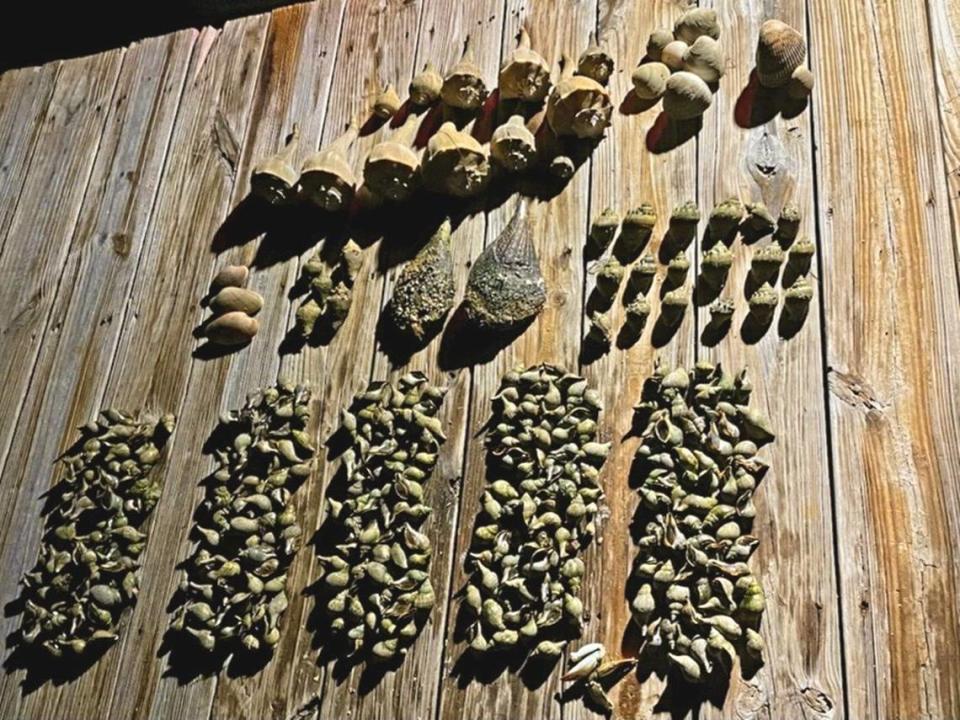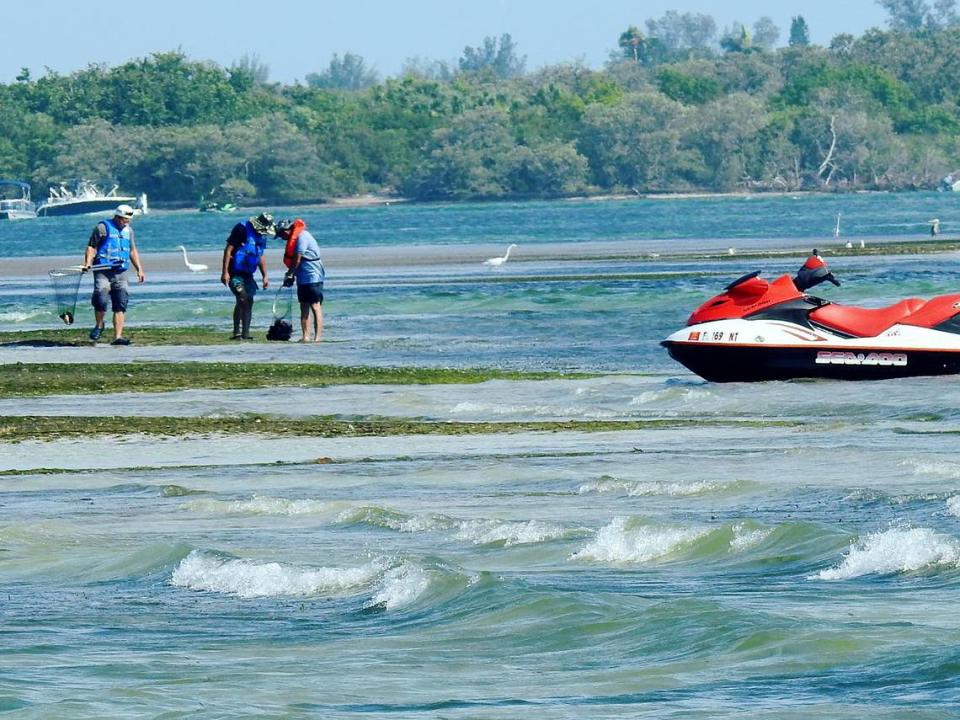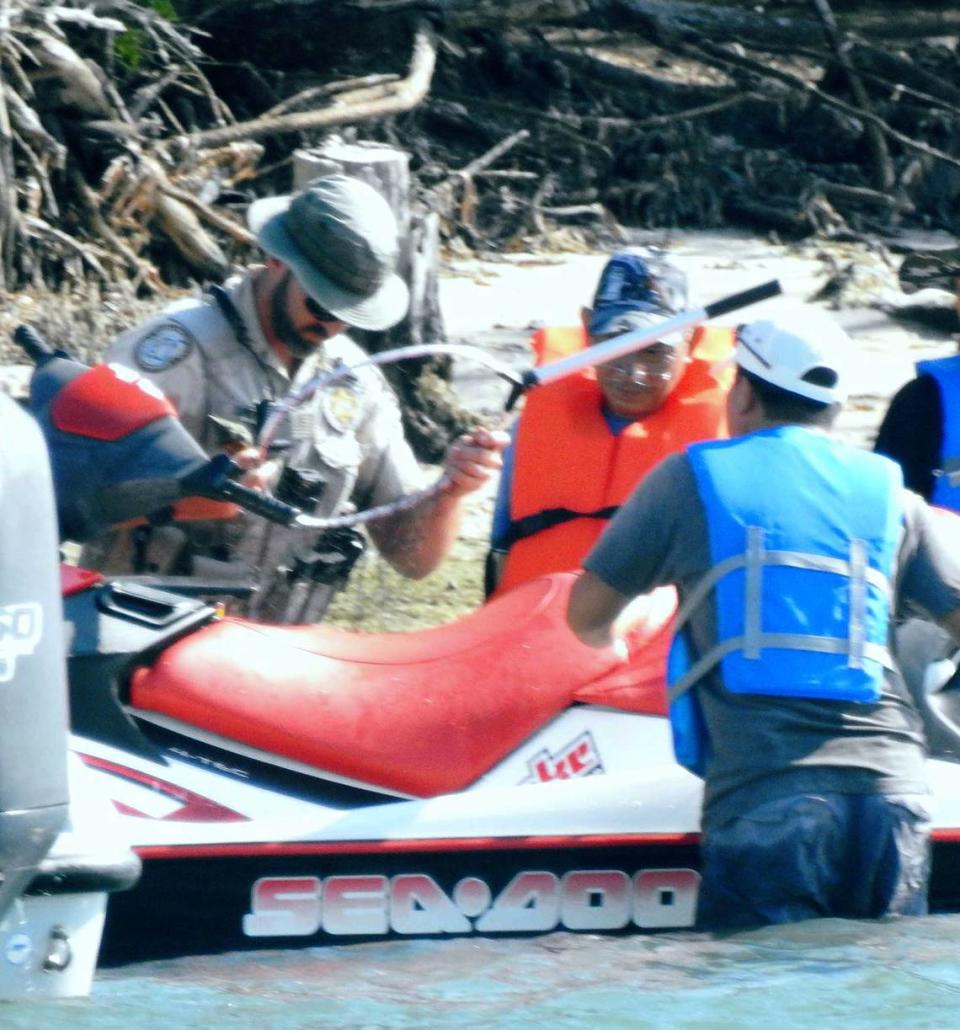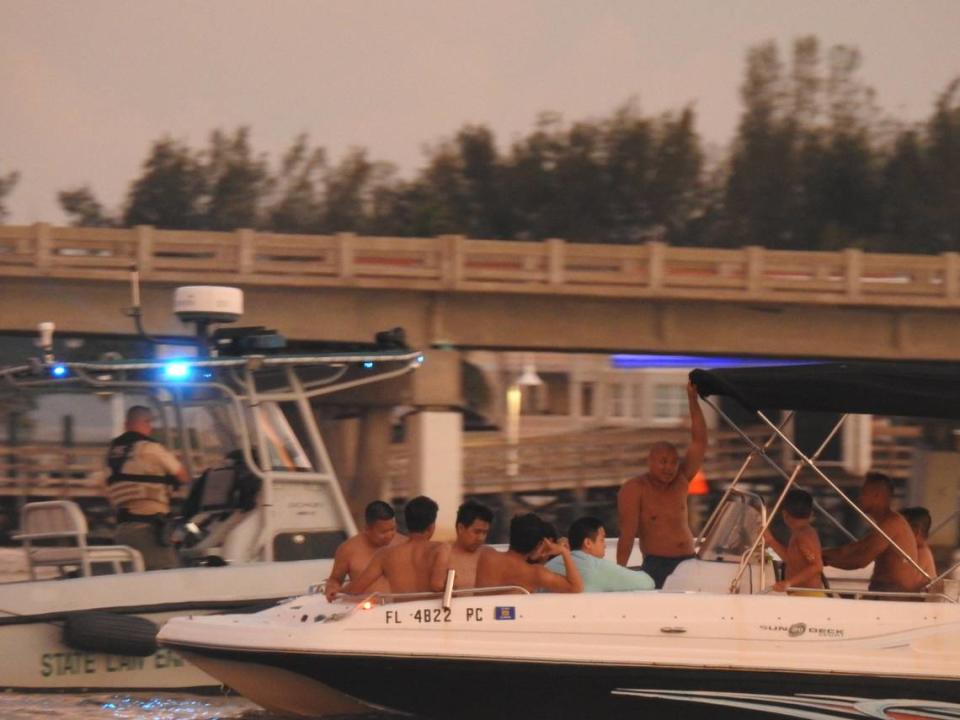‘Never seen anything like it.’ Bradenton fishing captain says illegal poaching is rampant
When Sarasota Bay is under attack from poachers, local boat captains are often its last line of defense, acting as the eyes, ears and voice of the water against those who would otherwise pluck it dry of wildlife.
And if you ask Captain Katie Tupin of Captain Katie Scarlett Boat Tours in Cortez, she’ll be the first one to tell you it’s been under attack a lot lately.
“I’ve never seen anything like it. I’ve lived here and seen this going on for my entire life, but I’ve never seen anything like what’s happened in the past 4 or 5 months,” she said.
The Florida Fish and Wildlife Conservation Commission wouldn’t comment on if they’ve seen any uptick in poaching recently, but they did tell the Bradenton Herald that they take poaching seriously and they made a recent stop that was alerted to them, in part, by Captain Tupin.
On July 18 at around 8 p.m., the FWC says an officer observed someone taking marine life near Longboat Pass in Manatee County when they also received a call reporting what appeared to be the same group.
The officer conducted an inspection of the boat that revealed numerous marine life species, including lightning whelk, hard clams, tulip snails, fighting conchs and more. In total, eight different species and over 250 total organisms were returned alive to the waters, FWC says.
The captain of the boat received two criminal citations for harvesting more than two live shellfish per species per day in Manatee County as well as the harvest of more than 20 individuals per day of tropical marine life species, FWC told Bradenton Herald in an email on July 25.
For a first offense, exceeding this limit can result in a level two FWC violation, resulting in a second-degree misdemeanor that is punishable by up to 60 days in jail and a $500 fine, according to Florida Statutes.
But Tupin said what’s being done isn’t enough and the vast majority of poachers go uncaught. The day before she had been out on the water when she said four pontoon boats with what she estimated to be around 1500 animals got away. She said she called FWC, but help never came.
So on July 18 when she and her fiance, Jeff Smith, got a call from Captain Anne Huber of Anne’s Calmwater Charters that alerted them about poachers yet again around Jewfish Key, they “ran out the door onto her boat and booked it,” a Facebook post by Smith reads.
They followed the poachers and called FWC, who Tupin said pulled over the alleged poachers and had them dock by the Seafood Shack Marina in Cortez.
Two hours later, at around 10 p.m., they were still docked and pulling animals off the boat, Tupin said. The animals found onboard well exceeded the legal limits, according to FWC.
That sort of excessive collecting can be damaging to the ecosystem, especially during the record-breaking heat, said Dr. Jay Leverone, the staff scientist for the Sarasota Bay Estuary Program.
“With the waters being as warm as they are right now, a lot of these organisms are being stressed already and do not do well at elevated water temperatures. So this is probably the worst time imaginable for people to be poaching these types of animals from our bay,” said Leverone, who was previously a research scientist at Mote Marine for 28 years.
While FWC said they wouldn’t speculate on the motivation behind the poaching, Leverone said that it is often the case that they are “collectors” who don’t want them for the food but instead for the value of the shells in order to sell them.
Leverone has now been with the Sarasota Estuary Program for 15 years, where his primary focus has been restoring the local shellfish populations, particularly scallops and oysters.
“We’ve done clam and scallop restoration in the bay because we want to build up these populations, but this does not help that cause,” he said.
He said a lot is unknown about population numbers for many of these organisms in the area, but it’s not thought that they are abundant, and they are “indicators of a healthy ecosystem.”
But there aren’t enough marine resource officers to go around, he said so the “good stewards of the bay” like Tupin are helpful in making sure the resources are protected and conserved.
Tupin wonders how much longer Sarasota Bay can put up with this level of poaching. That’s why she recently created the Voices of Sarasota Bay Facebook page to help spread awareness and relay information about illegal harvesting in the area.
“My family has lived here in this fishing village for six generations. I’ve always been out here on the water and I’ve seen a lot of travesties,” she said. “If we allow a free-for-all and let people come out here and take what they want, this is not going to be here in 10 years.”
FWC said that their Division of Law Enforcement is trying to regulate what they called an “ongoing concern” by focusing targeted efforts through high visibility as well as covert patrols in the area where the poaching has occurred.
How to report poaching
Report fishing, wildlife or boating violations anonymously to the Wildlife Alert Reward Program. If your information results in an arrest or citation, you may be eligible for a reward of up to $1,000. You can report via:
“FWC Wildlife Alert” app
Texting 847411 (Tip411) with keyword “FWC” and information about the violation
Calling the Wildlife Alert Hotline at 888-404-FWCC (888-404-3922)
Submitting a tip at MyFWC.com/WildlifeAlert
— FWC





